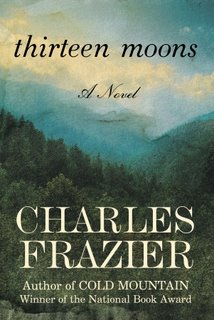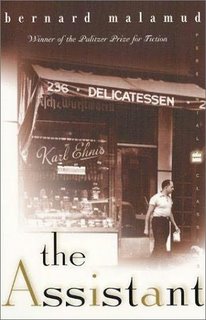 My love of baseball is no secret. I keep autographed baseballs from Joe Torre and the Phillies great Mike Schmidt on my desk, so it's no surprise each month when the latest baseball biographies, histories, and statistical analyses arrive.
My love of baseball is no secret. I keep autographed baseballs from Joe Torre and the Phillies great Mike Schmidt on my desk, so it's no surprise each month when the latest baseball biographies, histories, and statistical analyses arrive.It's a small slice of heaven for me. I used to dream about an endless torrent of books when I wandered through the local library as a kid. I envisioned myself doing the crawl stroke through a lake of books. Inevitably, my intellectual longings far outweigh my ability to actually read all these books. Close to 200 books languish in piles stacked on the floor of my bedroom. I swear I'm going to read them any day now.
I thought it would be interesting to pluck some of these books out of the piles, dust them off, examine why I wanted to read them in the first place, and maybe figure out why I haven't read them yet. When I told my wife about this idea, she said with unabashed enthusiasm, "Then you'll be able to get rid of them." I looked across the dinner table at her and said, "No, I hadn't thought about that. I figured I'd just put them back over by my side of the bed." That was met with a bemused grin, so I added, "I might rearrange them."
Here are some of the books gathering dust right now:
 Thirteen Moons by Charles Frazier. Random House held a wonderful dinner at the Book Expo in Washington D.C. back in May where I got a chance to meet and talk to Frazier about this book. After my conversation with him, it was the book I was most anticipating. When the meal was over, everyone was given a gift bag with an autographed reader's copy of Thirteen Moons. We were told the books were given out exclusively at the dinner and weren't available anywhere else.
Thirteen Moons by Charles Frazier. Random House held a wonderful dinner at the Book Expo in Washington D.C. back in May where I got a chance to meet and talk to Frazier about this book. After my conversation with him, it was the book I was most anticipating. When the meal was over, everyone was given a gift bag with an autographed reader's copy of Thirteen Moons. We were told the books were given out exclusively at the dinner and weren't available anywhere else.A few months later, my rep asked me if I'd read it yet. "Are you kidding me? I'm scared to touch it," I responded. "How much is it worth? They only printed a couple hundred copies, and he autographed it, for God's sake." She laughed and told me that it was probably even more valuable than I realized since some changes had been made to the text after the Book Expo.
I've got a hardback copy now, and I've read the first 15 pages -- twice. Somehow, it's not connecting with me. Perhaps, Cold Mountain was his masterpiece, and Thirteen Moons is his ponderous second novel. Perhaps the moment of peak anticipaton is gone forever. I'll give it another shot when I've got enough time to read at least the first 50 pages at once.
The Long Tail: Why the Future of Business is Selling Less of More by Chris Anderson. The main idea in this book both intrigues and scares me: selling small amounts of a vast array of products is the path to future success. I'm the head buyer of a physical store with limited capacity. Unlike Amazon, we just can't have a book sitting on our shelf if its sales ranking is 1,000,000. The store would be as covered in books as my bedroom, and the business office would want my head because of our unpaid bills. Anderson's premise just depresses me. All books aren't created equal. There aren't 1,000,000 books that deserve to be sold, in my humble opinion.
Like so many other business and political books, this topic probably doesn't deserve to be more than a magazine article. How can you get 250 pages on this? I'm actually wavering on the validity of the entire idea. Selling 100 copies of Bob Woodward's State of Denial made last week a whole lot more profitable than all the one-book special orders of the previous month. It's easier to win this argument with Anderson if I don't read the book.
 Scar Tissue by Charles Wright. I love Wright's poetry. I can't claim to always understand it, but his way with language and the amout of "aha" moments I experience reading his dense verse makes the effort worthwhile. He is unafraid to tackle major topics like life and death, God and time head-on when many other contemporary poets skirt around these issues.
Scar Tissue by Charles Wright. I love Wright's poetry. I can't claim to always understand it, but his way with language and the amout of "aha" moments I experience reading his dense verse makes the effort worthwhile. He is unafraid to tackle major topics like life and death, God and time head-on when many other contemporary poets skirt around these issues.This book got a somewhat flippant review in the New York Times Book Review last month. That's nothing new, because most critics and readers, including myself, find it so hard to muddle through contemporary poetry, let alone discuss it with any intelligence. What was unexpected, however, was the response from Franz Wright, the Pulitzer Prize-winning poet of 2004.
Here's my favorite line from his letter to the editor: "I cannot bring myself to believe that I am the only serious follower of contemporary poetry who is getting sick of reading reviews by nonentities posing as Randall Jarrell, and with cheap and superficial sarcasm standing in for genuine wit quoting out of context and generally manipulating the work of a master like Wright for the purpose of proving some artistic or prosodic theory of their own, usually one that has little or nothing to do with the book under discussion."
Wow. That's an 81-word sentence that mentions a largely forgotten -- at least to most readers -- mid-century critic in passing and uses the word "prosodic," which, by the way, means the study of the metrical structure of verse. I'm not sure if Franz Wright proved his point or the reviewer's point, but it sure made great reading.
Last Notes and other stories by Tamas Dobozy. Dobozy is of Hungarian descent, and this book is compared to Aleksandar Hemon's stories. I thought Hemon's novel Nowhere Man was one of the funniest, most creative books I've read in the last 10 years.
My wife and I read the first story in Dobozy's collection "Into the Ring," out loud together. It wasn't a romantic experience. It's a bizarre tale about a husband and wife who literally get into the boxing ring together. The wife is a real bruiser, which is a good thing, since they box even when she's pregnant. It was somewhat humorous, but didn't quite work for us as satire. The Eastern European flavor that makes Hemon's books so delightful was played down. I might go back to it, but I think I need more Hungarians and less fighters.
The Scratch of a Pen: 1763 and the Transformation of North America by Colin G. Calloway. I was all set to read this pithy history about the end of the French and Indian War and the conseqences for the colonialist and the Native Americans when Freedom Just Around the Corner by Walther McDougall caught my eye after sitting in the pile for two years. McDougall's book covers almost 250 years of American history, compared to one year in Calloway's book, and it was only three times as long. Needless to say, after spending two weeks with McDougall's colorful history, I haven't had the heart to read more American history.

McDougall's premise that we are a nation of scoundrels and schemers proved very entertaining. I particularly enjoyed that American hucksterism was treated as a positive quality. Hey, everyone wants the best deal they can get. Also, my hunch that "freedom just around the corner," was a lyric from a Bob Dylan song turned out to be correct. Who names a serious history book after a line from the song "Jokerman?" Somehow, it's perfect. Dylan himself is like a grizzled piece of Americana. As for Scratch of a Pen, there is always next year. Like one of my sales reps says about classical music, "this year it's 243 years old, next year it will be 244 years old. What's the difference? People will still listen." The year 1763 isn't going anywhere.
Well, there are still more than 190 books in the piles unaccounted for. I'm not sure that I'm swimming in the sea of literature like I used to dream about; it's more like I'm drowning beneath a swamp of ideas and stories.









